How do these three upcoming turn-based 40K games compare?
Space Hulk: Tactics, Adeptus Titanicus: Dominus, and Warhammer 40,000: Mechanicus are all coming soon.
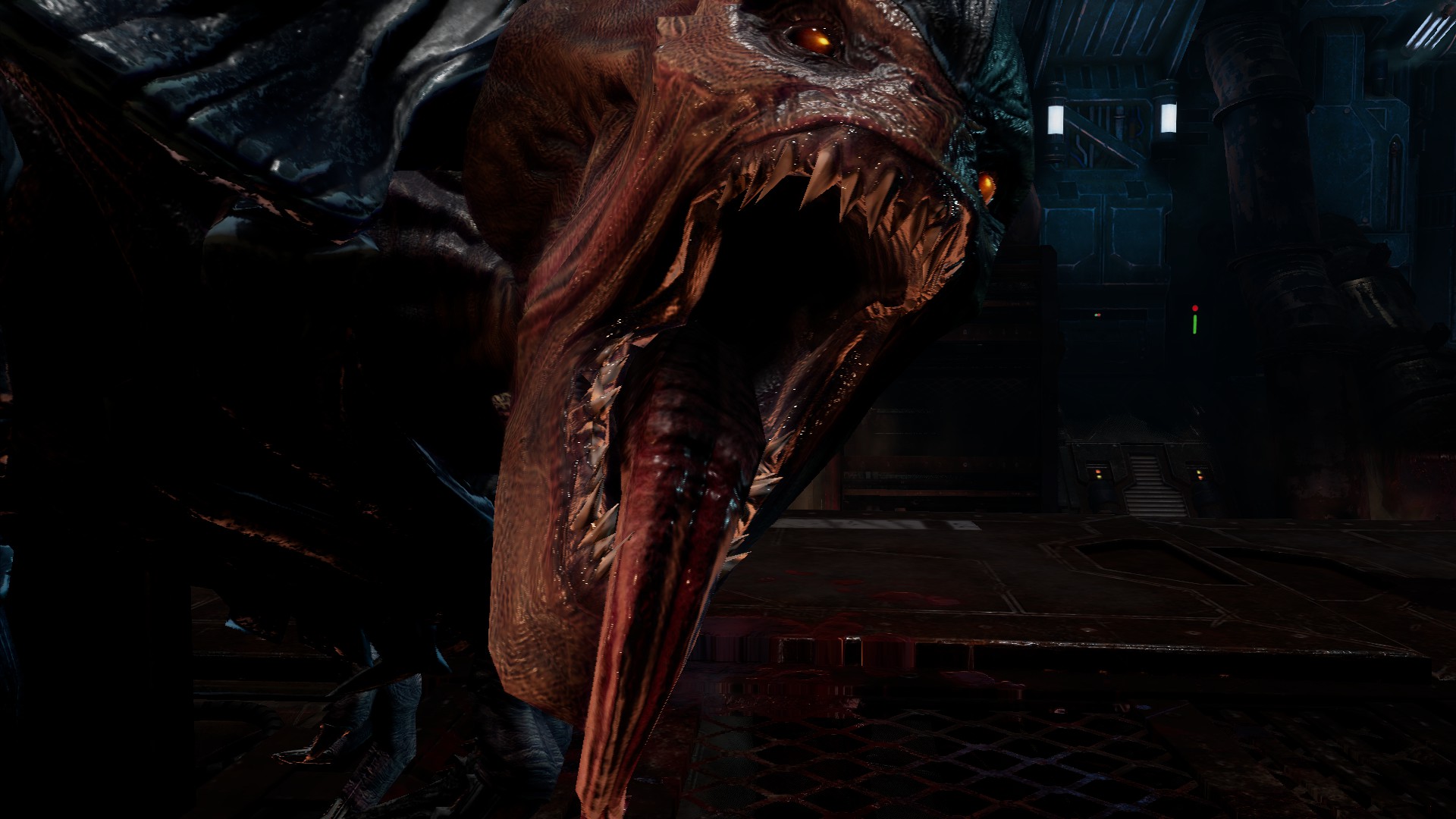
Much as I enjoy Dawn of War, it's not the real Warhammer 40,000 experience. The real 40K is about boxes with intense heavy metal sci-fi artwork on them full of rulebooks and miniatures. It's about sliding those miniatures across a table covered in terrain while rolling handfuls of dice, and then cursing those dice before replacing them with other dice that definitely have more luck in them. It's about taking turns.
One benefit of the current glut of licensed Games Workshop games is that some of them are trying to recreate that tabletop experience. Right now there are several turn-based 40K games in varying stages of production and I've had a chance to play three of them. None of them have given me a Shame Cup to put the cursed dice in, but nothing's perfect.
Tank controls
The core of Space Hulk is asymmetry—the alien Genestealers are agile, fluid, four-armed murder monsters while the armored Terminator Marines are walking tanks. Terminators are big enough to carry weapons that have a chance of penetrating Genestealer chitin, and also have room in the back for teleport homers so they can be beamed in and out of the hulks those aliens have taken over, but they handle like two shopping trollies strapped together.
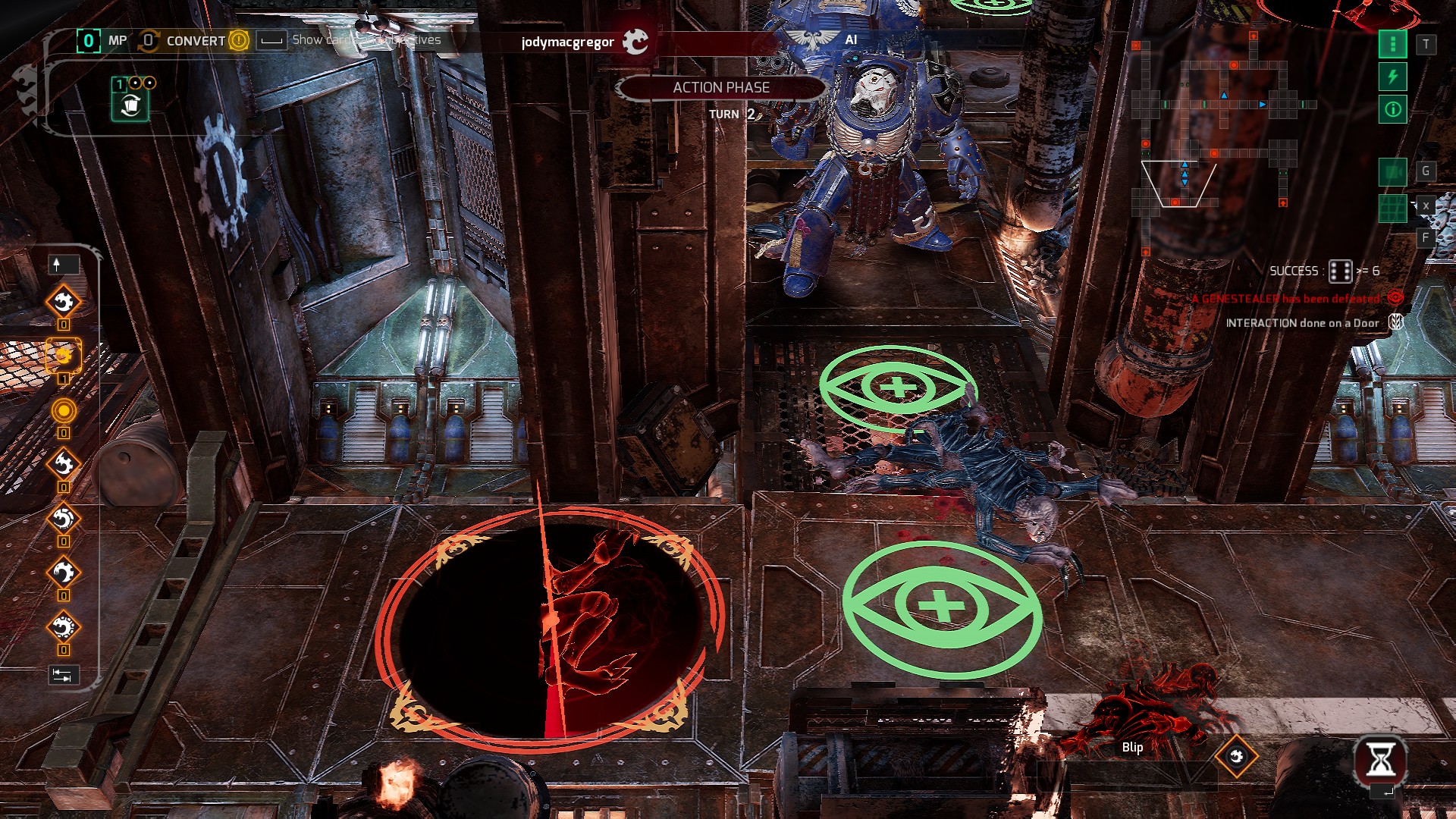
The Space Hulk board game has been adapted before, beginning with an atmospheric and brutally difficult 1993 version by EA. Space Hulk: Tactics has an immediate advantage over the other videogame versions, because it has a Genestealer campaign as well as a Space Marine one. Playing as the bad guys feels properly alien because the rules are so different: they don't just get more action points, they also pivot for free; they don't just have greater numbers, they appear as mysterious radar blips that could contain anywhere from zero to three actual Genestealers; they don't move cautiously using overwatch; they lurk around corners then rush out in suicidal waves hoping to throw enough bodies at the Marines so their guns jam.
The base rules of the board game are here, but with a few additions. Between missions there's squad customizing and leveling, and a map of the hulk to navigate. Within missions each side now gets a hand of cards that can be played for small bonuses or cashed in to give the Marines bonus action points and the Genestealers more blips.
Preserving the board game's asymmetry makes for unusual multiplayer. I've been unable to find a match yet—it's currently in beta for players who pre-ordered, with the launch on October 9—but early reports suggest the Genestealers have similar degrees of advantage to the tabletop. If may even be exacerbated, because cards only give between one and three bonus action points whereas in the board game you rolled a die for them each turn and could get as many as six.
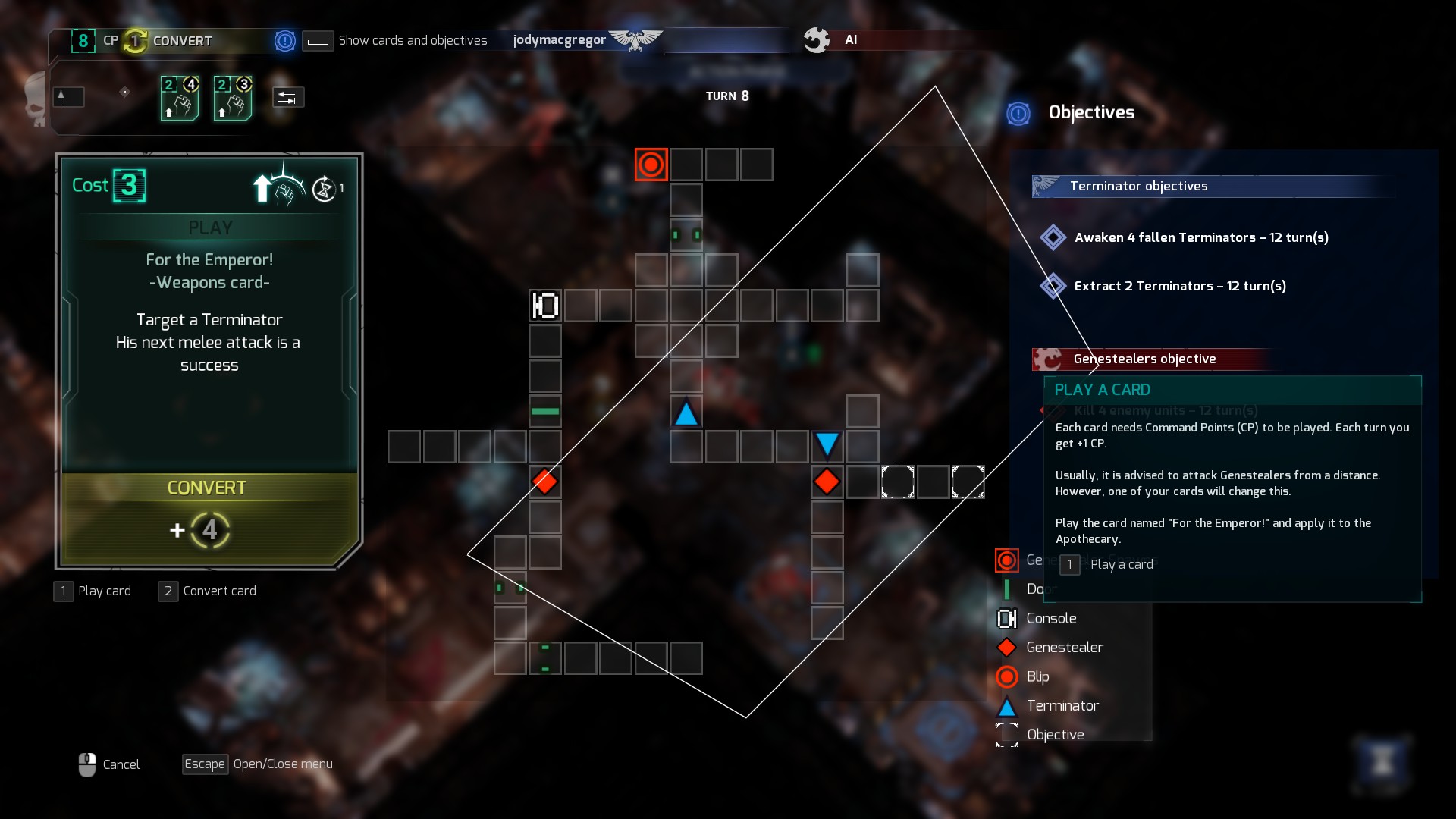
The deliberate imbalance was an advantage for a board game. If you owned a copy you could play the Marines and your friend who was learning the rules could play Genestealers and still have a chance of winning. For videogame players who are used to every tiny imbalance being cause for a Reddit war leading to three rounds of nerfs until it's fixed, that's a harder sell. But it would be nice to have a game whose multiplayer could be recommended to newbies by saying "play the Genestealers first" instead of "accept that you'll lose for hours until you get good at it".
The biggest gaming news, reviews and hardware deals
Keep up to date with the most important stories and the best deals, as picked by the PC Gamer team.
The sinking of the Titanicus
In 1988 someone at Games Workshop presumably looked over at the success of Battletech with hungry eyes and the result was Adeptus Titanicus, a game about mountain-sized mechs stomping across the 40K universe. It led to a whole line of games with little miniatures representing huge armies called "Epic 40,000". Adeptus Titanicus: Dominus brings those mech battles to your PC.
Dominus gives you a handful of titans and a murky map to move them around, grabbing objective markers and ducking out from behind bombed-out buildings or mountains to fire a barrage. Color-coded lines emerge from each titan like prog-rock laser shows, turning red to show which weapons are out of range, and differing hit percentages based on which speed they're at and what obstructions are in the way and so on. An update's made the AI better at understanding this stuff, so in skirmish mode it can put up a challenge.
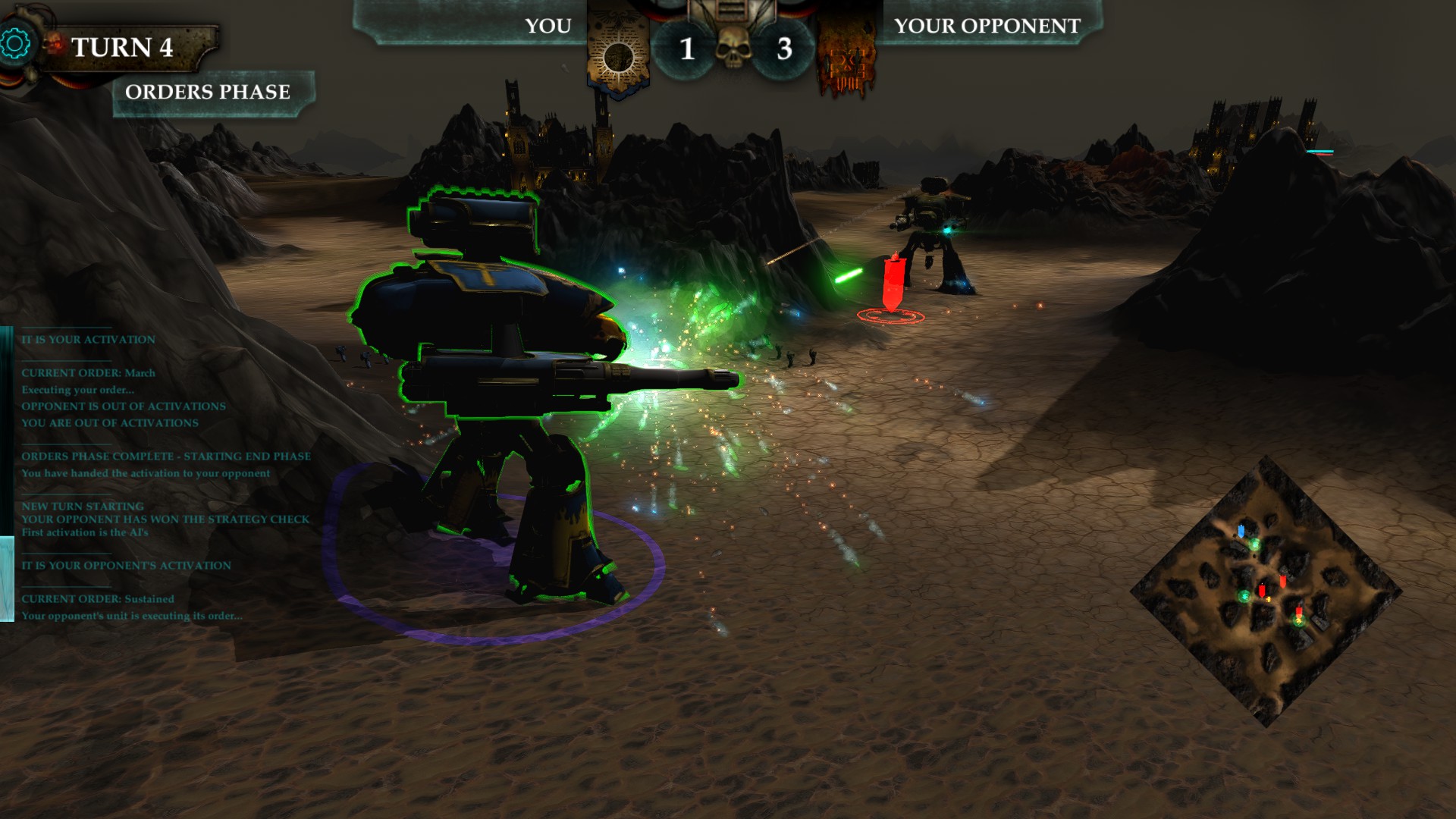
Dominus is in Early Access and it's much further from being done than either of the other games I've previewed. (I don't expect it till next year at the absolute earliest.) The tutorial's clunky, selecting where to move a titan sometimes involves repeated clicking to get the right spot, there are only three models to choose from, and the framerate's all over the shop. There's no singleplayer campaign yet either. Fixes for all of those things are on the way, but the biggest problem with Dominus has turned out to be the biggest problem with the original tabletop game—it's competing with Battletech, which just this year came out as a videogame and proved pretty popular.
God in the machine
Warhammer 40,000: Mechanicus doesn't adapt an existing game but instead an entire faction. The Adeptus Mechanicus are the cybernetic religious zealots of 40K, obsessed with digging up lost relics of the Dark Age of Technology and bolting them onto their own bodies, which is why so many of them have four arms and no skin and speak in binary. They're weird and great, and Mechanicus makes those tech-priests the center of a game for once rather than just the guys who handle your upgrades.
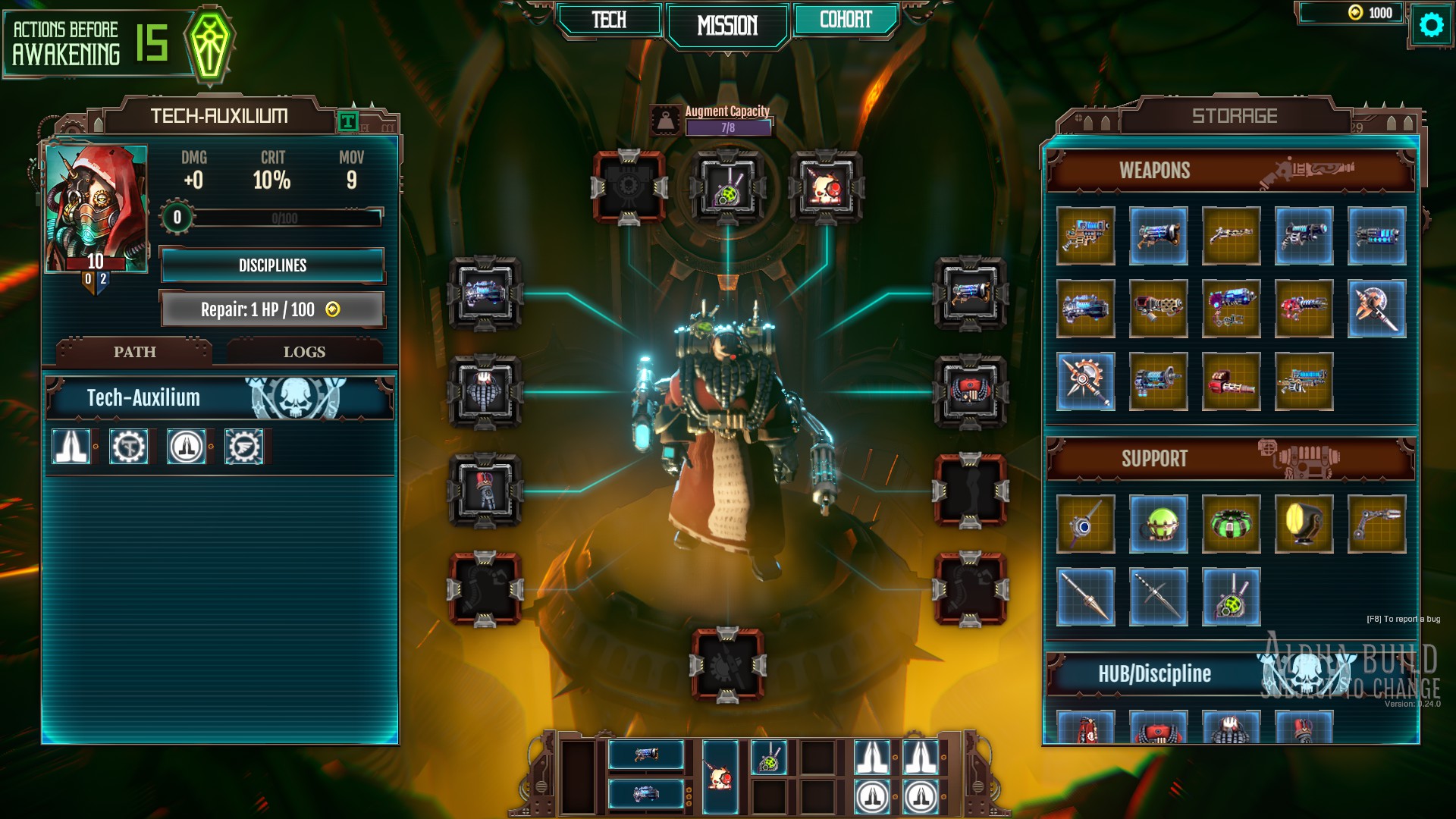
The villains are an unusual choice as well, the pseudo-Egyptian skeleton robots called Necrons you might remember from the excellent Dark Crusade expansion for Dawn of War. The two groups are pitted together in battles that are broadly reminiscent of XCOM but for a few major differences—one being that there's no cover mechanic to reward you for ducking behind half a wall. Instead, the tech-priests summon disposable troops between them and the enemy. Some are decent combatants on their own, like the bubble-headed Kastelan Robot, but others like the basic cyborg servitors are so throwaway you actually gain cognition points for letting them get shot.
Cognition points can be spent on special abilities and bonus moves for the tech-priests, and are harvested from dead Necrons and monoliths scattered around the levels. Each battle begins with tech-priests scurrying around to gather enough cognition points to use their best attacks, bringing in troops who hopefully delay the enemy long enough for the tech-priests to get into range and start shooting arcs of electricity that spread from unit to unit, or swinging power axes around. It's a very different feel to the stately overwatch parade of XCOM or Space Hulk.
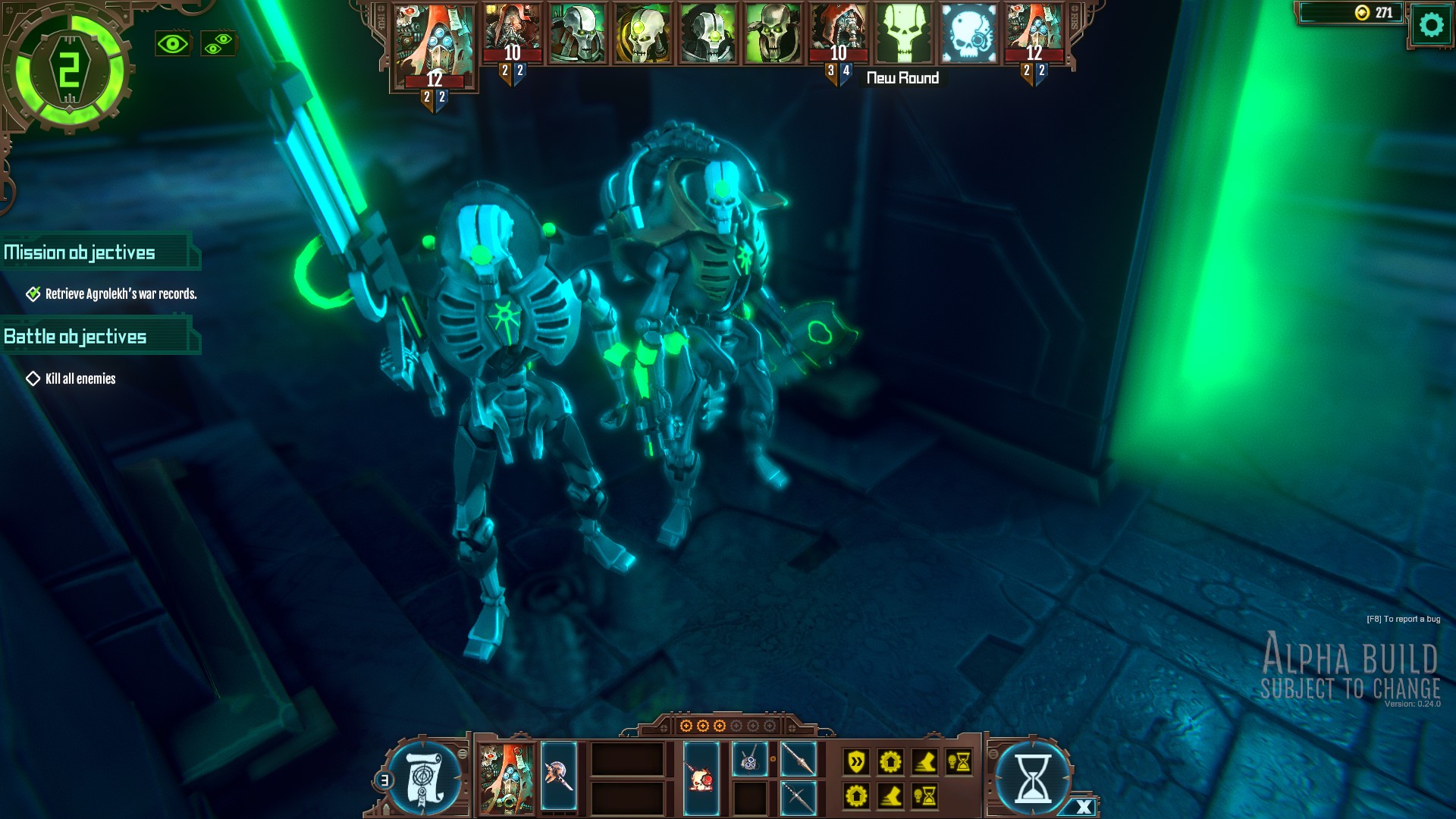
Between those battles you explore Necron tombs, which plays out a bit like a choose your own adventure book where the encounters are all very grim. "You have found the dead body of one of your allies. If you choose to booby-trap him to harm your enemies, turn to 17. If you broadcast footage of his sad corpse to the other troops to rile them up, turn to 23."
Warhammer 40,000 gave us "grimdark" and Mechanicus can evoke that when it wants to. The music's industrial-gothic and the tech-priests speak with machine drones because they're so far beyond human. At the same time it's aware that there's more to 40K than just the grimdark, and it's capable of being tongue in cheek. One of the advisors even talks like a programming nerd, announcing his intent to unearth all the tombs by saying, "Let secrets of this world = 0."
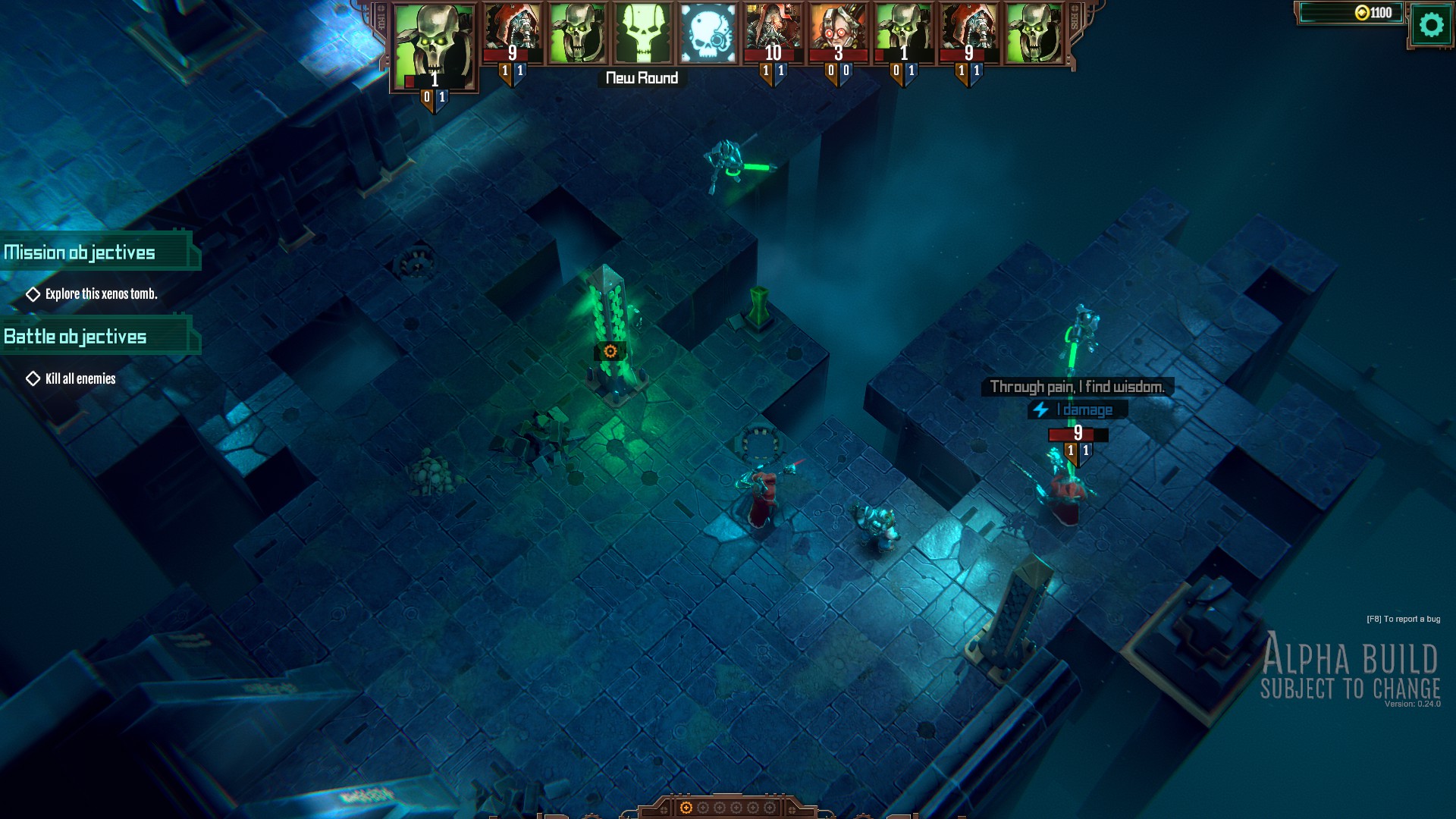
The cognition points and the way removing cover alters positioning are fine ideas, but it's that level of atmosphere that has me more interested in Mechanicus than its competitors. They feel more clinical—Dominus doesn't have much more than the brute mathematics of combat yet because it's so early in development while Space Hulk: Tactics is like the house rules your friend comes up with after playing the one game too many times. Its storytelling is plain too, with a plot about an Inquisitor interfering with the Marines' business that feels familiar from other 40K games. I'm still enjoying it, much more than the made-for-tablet 2013 version, but Mechanicus is the one I'm most looking forward too.
The fact that Mechanicus isn't a direct translation of an existing tabletop game isn't what makes it more interesting—it still feels very influenced by them, with models that look like figurines when you zoom all the way in and variable damage numbers that are pure dice roll—what makes it more interesting is that it goes beyond that and puts as much effort into evoking the world as it does evoking the games. It feels like the complete package, one that recreates the tone of that heavy metal cover art as much as the rulebooks that were behind them.

Jody's first computer was a Commodore 64, so he remembers having to use a code wheel to play Pool of Radiance. A former music journalist who interviewed everyone from Giorgio Moroder to Trent Reznor, Jody also co-hosted Australia's first radio show about videogames, Zed Games. He's written for Rock Paper Shotgun, The Big Issue, GamesRadar, Zam, Glixel, Five Out of Ten Magazine, and Playboy.com, whose cheques with the bunny logo made for fun conversations at the bank. Jody's first article for PC Gamer was about the audio of Alien Isolation, published in 2015, and since then he's written about why Silent Hill belongs on PC, why Recettear: An Item Shop's Tale is the best fantasy shopkeeper tycoon game, and how weird Lost Ark can get. Jody edited PC Gamer Indie from 2017 to 2018, and he eventually lived up to his promise to play every Warhammer videogame.

